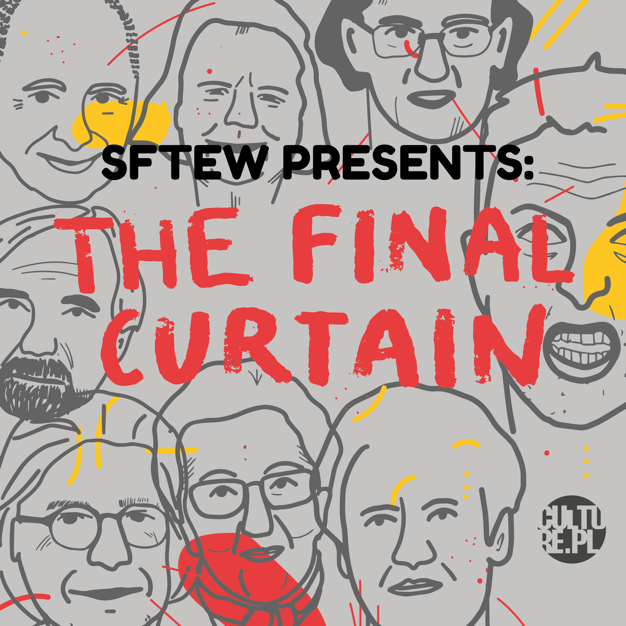
Stories From The Eastern West
Culture.pl
Little-known histories from Central & Eastern Europe that changed our world...
- 25 minutes 43 secondsCHAIN
In the very last episode of Stories of The Eastern West as you knew it, we’re taking you to Estonia, 1989. A group of people there made 2 million others hold hands and create a human chain of unprecedented size and significance.
The Baltic countries had a truly turbulent 20th century. They went from regaining their independence to losing it to the USSR and becoming subject to a ruthless policy of Russification. Unsurprisingly, they needed something big to jump on the bandwagon of the 1989 peaceful revolutions that liberated several countries from the USSR’s influence.What they came up with was a human chain linking Tallinn with Riga and Vilnius. This huge event is something hard to wrap one’s head around nowadays when we think about the scanty means of communication the organisers had.
Our producer Wojciech went to Estonia and got a chance to talk to several people who co-organised or participated in the event. How was it at all possible? Why wasn’t it thwarted by the communist regime? How do people remember such a defining moment in their lives over 30 years later?
Further listening
- KAIE / our episode from our mini-series The Final Curtain about ‘The Singing Revolution’ that Adam mentions in the show
Further reading
- The Longest Unbroken Human Chain In History / an article on estonianworld.com
- All the human chains in one place / an article on wikipedia.org
Further watching
- The Inimitable Baltic Way / a Lithuanian documentary
Thanks
- Ivi Gubinska, Reet Villig, Eve Sildnik, Andres Tarand and Lukas Hioo for taking the time to discuss this incredible event with us.
- Keiu Telve and Maia-Liisa Anton for connecting us with Baltic Way participants and their thoughtful discussions about the meaning of the event.
Credits
Written & produced by Wojciech Oleksiak
Edited by Adam Zulawski & Nitzan Reisner
Hosted by Nitzan Reisner & Adam Zulawski
Scoring & sound design by Wojciech Oleksiak1 September 2022, 8:54 am - 25 minutes 11 secondsEXILE
Get to know Piotr Szkopiak, a London-based film and TV director who’s spent a good portion of his life pondering the nature of his identity.
Piotr Szkopiak was born in the United Kingdom but into a Polish family. As he grew up, he learned that his parents and neighbours were all World War II prisoners of war who had escaped the USSR but couldn't go back to Poland after the war ended. His mother told him how she had travelled from the depths of the Soviet Union through Persia and southern Europe to the UK, and how after the war this is the place that she had to learn to call home.
But first and foremost, his parents talked to him in Polish, signed him up for a Polish weekend school, and raised him as a person with a double identity: Polish and British. This in-betweenness has been something that strongly influenced his life and he reflects on it all in an interview he gave to Karolina Jackowiak, who on behalf of the Poles in South London organisation, was working on the Local Heroes Archive oral history project. We, at SFTEW, liked the story so much that we decided to turn it into one of our episodes.
Click here to get the transcript
Like our show? Sign up for our newsletter!
Further listening
- ORPHANS // the SFTEW episode we mention in the podcast: how 700 Polish children made an unlikely journey from the depths of Siberia to the New Zealand countryside.
- BEAR // an even more unlikely tale from us at SFTEW: the bear who fought in World War II alongside Anders’ Army.
Further reading
- Artists In Arms // the incredible odyssey of Anders’ Army, told through a multimedia guide from Culture.pl
- Soldiers, Artists: The Exhibitions of Anders’ Army // on Culture.pl
- Piotr Szkopiak // Piotr's IMDB profile
- Cultivating Polish Folk Dance in 1970s South London // another story from the Local Heroes Archive project
- Memories of South London’s Polish Music Scene // another story from the Local Heroes Archive project
- Poles in South London // the community’s official website
Thanks
Piotr Szkopiak // for letting us turn his story into a podcast episode.
Poles in South London // especially Marta Sordyl and Łukasz Wołągiewicz from the organisation, for reaching out and offering this incredible story to us.
Credits
Written & produced by Wojciech Oleksiak
Edited by Nitzan Reisner & Adam Zulawski
Hosted by Nitzan Reisner & Adam Zulawski
Scoring & sound design by Wojciech Oleksiak17 December 2021, 6:12 pm - 30 minutes 5 secondsREVOLUTION
Nicolaus Copernicus, born in 1473, was the orphaned son of a copper merchant in Toruń. Thanks to his bishop uncle, he obtained a first class education at the Kraków Academy and then in Italy, where he became an avid observer of the night sky – even though he was supposed to be preparing for a church career.
His day job as a church canon, diplomat and doctor in Frombork – when he wasn't defending castles against the Teutonic Knights – meant that it took him over 30 years to finish his book 'On the Revolutions of the Heavenly Spheres' in which he presented an Earth-shattering new idea – that maybe it wasn't actually at the centre of the universe as everyone believed, but in fact revolved around the Sun.
Although it would take another century until Galileo was able to prove Copernicus right inarguably using the later invention of the telescope, Copernicus's book, published in 1543 in Nuremberg, would mark the beginning of a very real revolution in science and our understanding of the universe.
Listen to the episode to find out how he came to this unexpected conclusion, and what happened next.
Click here to get the transcript
Like our show? Sign up for our newsletter!
Further reading
- Copernicus: Revelations about the Renaissance Man // on Culture.pl
- Astronomer Copernicus, or Conversations with God – Jan Matejko // on Culture.pl
- A Quiz About Copernicus: More Than a Great Astronomer! // on Culture.pl
Further watching
- Copernicus, by Jan Matejko // video by Waldemar Januszczak on YouTube.com
Further visiting
- Nicolaus Copernicus Museum // in Frombork, Northern Poland
Thanks
Małgorzata Czupajło // Educator at the Nicolaus Copernicus Museum in Frombork.
Dava Sobel // Science history writer and author of A More Perfect Heaven: How Copernicus Revolutionized the Cosmos.
Prof. Karl Galle // Science historian at the American University in Cairo, currently working on a book delving into Copernicus's life in Warmia, including his roles as a church administrator, diplomat, cartographer and doctor.
Lastly, a special thank you to the Nicolaus Copernicus Museum in Frombork for their help in making this episode possible.
Credits
Written & produced by Piotr Wołodźko
Edited by Wojciech Oleksiak & Adam Zulawski
Hosted by Nitzan Reisner & Adam Zulawski
Scoring & sound design by Wojciech Oleksiak10 November 2021, 4:12 pm - 26 minutes 37 secondsDAISIES
Vera Chytilová was the most important woman director of the Czechoslovak New Wave – although she remains relatively unknown outside of Central Europe. As the first female student of the prestigious FAMU film school in Prague, she had to fight in order to do things her own way. During the creative explosion of the Czechoslovak New Wave, she made her most well known film ‘Daisies’ (1966) – a surrealist pop-art comedy, about two young women who set their minds on creating humorous destruction around them. The 1968 Warsaw Pact invasion of her country stopped Chytilová’s promising career dead in its tracks, but unlike Miloś Forman (‘One Flew Over the Cuckoo's Nest’, 1975) and others, she refused to emigrate, despite the huge personal cost. After seven years of professional exile, she was allowed to return to filmmaking in the late 1970s, once again finding critical success. After the privatisation of the Czech film industry in the 1990s, she was one of the first to adapt with ‘The Inheritance’ (1992) – a scathing satire on the effect free-for-all capitalism was having on her fellow citizens. Having never compromised on her beliefs, she remained a moral authority in her country until her death in 2014, and continues to inspire those lucky enough to come across her films for the first time. Listen to the episode to hear her fascinating story.
Click here to get the transcript
Like our show? Sign up for our newsletter!
Further reading
- Vera Chytilova Dies at 85; Made Daring Films in Czech New Wave // on nytimes.com
- "It's still revolutionary' : Věra Chytilová’s Daisies comes sixth in BBC poll of films by women // on Czech Radio.cz
- The Cinematic Gems of the Czechoslovak New Wave // on Hyperallergic.com
- Poles Conquer Czech Cinema // on Culture.pl
- The Most Powerful Films From Beyond the Iron Curtain // on Culture.pl
Further watching
- Naughty Young People: Chytilová, Kučera, Krumbachova (2012) // documentary at Vimeo.com
Thanks
Tereza Kučerova // set designer and visual artist, for talking to us about her mother, and her childhood memories of the dramatic events of 1968.
Anička Hanáková // for helping translate our conversation and sharing her own memories of her grandmother.
Dr. Michal Bregant // director of the National Film Archive in Prague, for sharing his experience of working with Chytilová in the 1980s.
Professor Jan Bernard // for talking about his former teaching colleague at at FAMU.
Dr. Jindřiška Bláhová // Assistant Film Studies Professor at Charles University, for sharing her knowledge of Chytilová's life and work.
Jakub Felcman // filmmaker and former student of Chytilová at FAMU, for talking to us about the Czech director as a teacher and mentor.
Lastly, a special thanks to Barbora Lochmanová from the Czech Film Center and Jitka Rohanova from the Polish Institute in Prague for their help in making the episode possible.
Credits
Written & produced by Piotr Wołodźko
Edited by Wojciech Oleksiak & Adam Zulawski
Hosted by Nitzan Reisner & Adam Zulawski
Scoring & sound design by Wojciech Oleksiak7 October 2021, 2:08 pm - 27 minutes 14 secondsVISIONARY
Stanisław Lem was a science-fiction writer whose works, abilities and quirky sense of humor convinced Phillip K. Dick that he was too brilliant to exist and must have actually been a committee of people! Indeed his rare gift for blending philosophy with technology and action made him an instantaneously recognisable voice in the European sci-fi world and elevated him to the heights of popularity and critical acclaim.
But Lem’s life was far from a textbook success story. Throughout his life, he struggled with traumatic wartime memories, distorted identities, and the communist system. But somehow, he was able to turn all the hardships and obstacles into elements of the incredible universes he created in his novels.
In this episode, our hosts Nitzan and Adam will try to unravel some of the most confusing mysteries surrounding Lem: why did he choose to abandon his pre-war identity? How on Earth did he foresee the Internet in the 1960s? Is it true that he learned English from a dictionary in a week?
Like our show? Get our newsletter!
Further reading
- Stanisław Lem // bio on Culture.pl
- Stanisław Lem: Did the Holocaust Shape His Sci-Fi World? // on Culture.pl
- 13 Things Lem Predicted About The Future We Live In // on Culture.pl
- Phillip K. Dick: Stanisław Lem is a Communist Committee // on Culture.pl
- Lem Vs. Tarkovsky: The Fight Over ‘Solaris’ // on Culture.pl
- The Many Masks & Faces of Stanisław Lem // on Culture.pl
- Humorous Horrors: How Lem Taught His Nephew to Write Flawlessly // on Culture.pl
- 8 Science Fiction Films Adapted from Lem // on Culture.pl
Further watching
Thanks
Agnieszka Gajewska // professor of literary studies, author of ‘Holocaust and the Stars: The Past in the Prose of Stanisław Lem’ (available in English from November 2021) and ‘Hasło: Feminizm’.
Wojciech Orliński // a Polish journalist, writer, and blogger, author of the best-selling Lem biography ‘Lem: Życie Nie z tej Ziemi’ (Lem: A Life Out of This World). You can enjoy his incredible sense of humour on his blog (which he writes in Polish).
Wiktor Jaźniewicz // Belarus’s premier ‘lemologist’, and owner of a ‘lemologic cabinet’ that you can see for yourself here.
Credits
Written & produced by Wojciech Oleksiak
Edited by Adam Zulawski
Hosted by Nitzan Reisner & Adam Zulawski
Scoring & sound design by Wojciech Oleksiak7 September 2021, 12:07 pm - 1 minute 30 secondsAnnouncing Season IV
This year we have more great stories for you! There's going to be a bit of sci-fi, a pinch of socialist realism, a good portion of astronomy, and some old-fashioned moving testimonies from a region that never sleeps!
Stay tuned: the first episode drops September 7th!
Like our show? Get our newsletter!
24 August 2021, 2:01 pm - 28 minutes 16 secondsSTATELESS
In 1967, Marian Marzyński was a popular TV show host and filmmaker in Poland. But then a seemingly faraway military clash sparked an unexpected conflict within the Polish communist party that led its Jewish members to be accused of anti-Polish sentiments. The conflict developed into an anti-Semitic campaign that affected all of Polish Jewish society and led to the emigration of the majority of the remaining Polish Jews, whose numbers had already been dwindled due to the Holocaust. Emigrating away from an authoritarian regime, Marian was able to process the events around him by filming them from his perspective, something he was previously unable to do. He continues to film his personal stories today.
Like our show? Sign up for our newsletter!
Time stamps
[00:11] 1968: a year of global unrest
[02:08] Escape from the ghetto
[03:17] Never forget to lie
[07:13] The war is over. Jewish identity after the war
[08:22] Marian becomes a journalist
[10:28] Internationalism vs. nationalism
[10:46] The Six-Day War
[12:08] Censoring 'Dziady' in the National Theatre
[12:39] The mechanisms of hostility
[14:55] Marian decides to leave
[16:16] First stop: Denmark
[17:29] Marian films emigration
[18:38] Who were we?
[19:45] What is emigration?
[20:13] Film-making after emigration
[21:30] Moving to the USA
[23:06] Humour
[24:12] Marian’s returns to Poland
[25:40] The inner childFurther reading
Further watching
- Life on Marz // Marian Marzyński's film on Vimeo.com
- Skibet/Hatikvah // Marian Marzyński's film on Vimeo.com
- Jewish Blues // Marian Marzyński's film on Vimeo.com
- Shtetl // Marian Marzyński's film on Vimeo.com
Credits
Written & produced by Monika Proba
Edited by Wojtek Oleksiak, Adam Zulawski & Nitzan Reisner
Hosted by Nitzan Reisner & Adam Zulawski
Scoring & sound design by Wojciech Oleksiak31 March 2021, 4:00 pm - 24 minutes 19 secondsPUPPETS
In 1938, Hitler's forces marched into Czechoslovakia, a country that had only gained its independence two decades earlier. A puppeteer named Josef Skupa was ready to fight back with the help of Spejbl and Hurvínek – a father son duo of wooden puppets. Because the Nazi German occupiers didn't seem to take puppets very seriously, Skupa's theatre in Pilsen was able to put on satirical performances that directly referred to the occupation and gave ordinary Czechs hope that one day things would be better. Eventually Skupa's luck would run out – the Gestapo even arrested his puppet duo. But all three were destined to become household names in the Czech Republic, a country that takes its puppets seriously...
Like our show? Sign up for our newsletter!
Time stamps
00:48] Imagine if Kermit the frog took on the Third Reich
[02:12] Josef Skupa and Kašpárek farewell the Austrio-Hungarian Empire
[04:36] A modern kind of puppet theatre
[07:25] Spejbl and Hurvínek battle Nazi insects
[08:30] Munich Conference and Carousel over Three Floors
[11:44] Voničky and Long Live the Future
[14:50] Death threats and a final anti-fascist play
[16:28] Arrest of Skupa and his puppets
[17:58] Escape from prison, Spejbl and Hurvínek rescued from the trash
[20:51] Legacy of Josef Skupa and his puppets
[21:43] Puppet-making workshop with Mirek and Leah
[23:21] CreditsFurther reading
- Josef Skupa // on World Encyclopedia of Puppet Arts
- Jan Malik // on World Encyclopedia of Puppet Arts
- Sjebl and Hurvinek // on Wikipedia
- Quay Brothers' Puppetry Prescription in New York // on Culture.pl
- Puppets, Birds & Wycinanki // on Culture.pl
- The Bug Trainer – The Story of Władysław Starewicz // on Culture.pl
Further watching
- Spejbl goes Mushroom Hunting // short episode from the 1974 bedtime series Return of Spejbl and Hurvinek, voiced by Josef Skupa's protege Miloś Kirchner. On Ceskatelevize.cz (Czech only)
Further visiting
- Spejbl and Hurvinek Theatre // Puppet theatre in Prague opened by Josef Skupa in 1945 as a continuation of his theatre in Pilsen. They hold regular shows for kids and families.
- Plzeň Puppet Museum // Puppet museum located in the historic centre of Plzeň (Pilsen), the town where Josef Skupa opened his first theatre and the birthplace of Spejbl and Hurvínek.
- Puppets in Prague // Puppet-making workshop in Prague run by Mirek Trejtner and Leah Gaffen. Temporarily being run online.
Credits
Written & produced by Piotr Wołodźko
Edited by Wojtek Oleksiak & Adam Zulawski
Hosted by Nitzan Reisner & Adam Zulawski
Scoring & sound design by Wojciech OleksiakThanks
We’d like to thank Denisa Kirchnerova from the Spejbl and Hurvinek theatre in Prague, Tomáš Pfejfer, curator at the Puppet Museum in Pilsen, and Nina Malikowa for sharing their knowledge about Josef Skupa and his performances during WWII.
Thanks also to Leah Gaffen and Mirek Trejtner from Puppets in Prague for talking to us and inviting Piotr to their skeleton-making workshop.
Lastly, a special thanks to Jitka Rohanova from the Polish Institute in Prague for her help in making the episode.
1 March 2021, 3:00 pm - 25 minutes 4 secondsWITNESS
Back in 2019, we got the chance to interview Anastasija Gulej. She was 95 at the time, living a happy life in one of Kyiv's suburbs. If you didn’t know her, you’d never tell be able to tell that she wakes up every day with the horrors of her past. Her past as an Auschwitz-Birkenau inmate.
Anastasija was already 18 years old when she was taken there, which makes her memories especially valuable. She remembers things perfectly clearly, she understood what was going around her, she knew what it was.
We strongly believe that keeping the memories of such events in mind is our duty, even more so now, when most of the people who could remember it are gone.
Like our show? Sign up for our newsletter!
Time stamps
[01:29] Beginning of the war
[05:22] The first time Anastasija was afraid
[07:31] Auschwitz-Birkenau
[15:56] The Death March
[20:17] Liberation. Bergen-Belsen Camp
[22:25] Post scriptum
[24:19] CreditsFurther reading
-
There Was Love in the Ghetto: A Conversation with Paula Sawicka // on Culture.pl
-
The Holocaust in Polish Literature: 7 Key Books // on Culture.pl
-
You Never Know How Fate Will Play Out: An Interview With Józef Hen // on Culture.pl
Further watching
-
Zofia Posmysz: Memory That Will Save Us // on Culture.pl
-
Preserving Memory: The Conservation of Auschwitz-Birkenau // on Culture.pl
-
Preserving Memory: The Barracks of Auschwitz-Birkenau // on Culture.pl
-
Preserving Memory: The Art of Auschwitz-Birkenau // on Culture.pl
Credits
Written and produced by Wojciech Oleksiak & Żenia Klimakin
Edited by Wojciech Oleksiak & Adam Zulawski
Hosted by Nitzan Reisner & Adam Zulawski
Scoring & sound design by Wojciech Oleksiak27 January 2021, 12:56 pm -
- 24 minutes 14 secondsWITCHES
‘Romania today is possibly the only European country where you can bump into a witch at the supermarket.’
The history of witches in Europe is a tumultuous and violent one. Always on the margins of society and in opposition to any form of hierarchy, their presence sparked fear and prejudice which led to prosecutions and witch hunts. But unbeknownst to many, their traditions have outlasted all of this. In Romania, the 21st century has turned out to be a surprisingly good time for witches.
As a child, Clara learned that they could make anything happen. As a grown up, she had a few questions about it all and decided to knock on a witch’s door. But interviewing a witch turned out not to be so simple...
Like our show? Sign up for our newsletter!
Time stamps
[01:08] The spell
[02:09] Ball lightning
[07:14] Clara & her grandmother try to interview a witch
[12:51] Clara & Monika team up
[13:51] The most powerful witch in southeastern Europe
[15:21] What a witch can do
[16:30] Back to square one
[23:00] CreditsFurther reading
- Romania's Modern Witches // on CNN Style
- Lucia Sekerková: A Peculiar Look at 21st-Century Witchcraft // photography on The Calvert Journal
- Beneath the Surface: The Occult Inspirations of Poland's Legendary Naive Artist Coal Miners // on Culture.pl
- 9 Supernatural Beings & Places of Polish Folklore // on Culture.pl
- Slavic Daemons: Fearsome & Formidable Females // on Culture.pl
- Séances, Dragons & Chakras: Kraków's Magical Past // on Culture.pl
Further watching
- Witchcraft in Romania // video on VICE Asia Youtube channel
Credits
Written & produced by Monika Proba & Clara Kleininger
Edited by Wojciech Oleksiak & Adam Zulawski
Hosted by Nitzan Reisner & Adam Zulawski
Scoring & sound design by Wojciech OleksiakThanks
A huge thanks to Mrs. Ardelanca and her daughter for foreseeing only good events.
31 December 2020, 12:21 pm - 35 minutes 24 secondsLUNAR
In the summer of 1976, the late Polish film director Andrzej Żuławski, responsible for infamous cult classics such as The Devil (1972) and Possession (1981), was given a green light to shoot the most expensive film ever made in Poland. On the Silver Globe was meant to be a massively ambitious science-fiction epic set on the Moon, showing the birth of a new civilisation, and produced without the benefit of modern special effects. But things didn't quite go to plan.
The huge ambitions of a temperamental and demanding director combined with the financial and technological realities of 1970s Poland meant that the production faced an uphill battle from the first day of shooting. But with over 70% of the film already shot, and the end almost in sight, On the Silver Globe unexpectedly fell victim to the whims of a Communist Party hardliner and was relegated to cinematic history.
How do you make a space opera without Hollywood special effects in a state-run economy? What were the crew doing in Mongolia? Who was Janusz Wilhelmi and why did he shut down the production? And does the story ultimately have a happy ending?
Like our show? Sign up for our newsletter!
Time stamps
[01:24] Intro
[02:56] Flying to the Moon
[05:10] Economic strife & a controversial director
[07:20] Making a space opera without special effects
[10:09] The Gobi Desert as the Moon
[12:10] Production delays & cost overruns
[16:15] Script changes & Hamlet monologues
[18:37] A burning Shern
[22:03] Wilhelmi arrives on the scene
[25:55] ‘It’s over, lads.’
[29:38] Is this how the story ends?
[33:54] CreditsFurther reading
- On the Silver Globe // film description on Culture.pl
- Andrzej Żulawski // bio on Culture.pl
- The Origins of Polish Sci-Fi & The Legacy of Jerzy Żuławski // feature article on Culture.pl about the origins of The Lunar Trilogy books and their far-reaching influence
- Jerzy Żuławski // bio on Culture.pl
- On the Silver Globe // on RogerEbert.com
Further watching
- On The Silver Globe // fragment of the film after digital restoration, on Kadr Film Studio’s Youtube channel.
Further visiting
- CETA Audiovisual Technology Centre// If you happen to be in the beautiful South-West city of Wrocław, you can visit the building that used to house the Wrocław film studio, which served as a base for the film, as well as such classics as The Saragossa Manuscript by Wojciech Jerzy Has. These days it houses a state-of the art special effects studio, but remains the home of the surviving costumes and props from On the Silver Globe.
Credits
Written & produced by Piotr Wołodźko
Edited by Wojtek Oleksiak & Adam Zulawski
Hosted by Nitzan Reisner & Adam Zulawski
Scoring & sound design by Wojciech OleksiakThanks
We'd like to thank Andrzej Jaroszewicz, Andrzej Seweryn, Stefan Kurzyp, and Jerzy Śnieżawski for talking to us. Many thanks also to Daniel Bird for guiding us through the strange world that is On the Silver Globe. And lastly, a special thanks to Maria Duffek, costume designer at the CETA audiovisual technology centre in Wrocław for her help and extensive knowledge.
30 November 2020, 5:10 pm - More Episodes? Get the App
Your feedback is valuable to us. Should you encounter any bugs, glitches, lack of functionality or other problems, please email us on [email protected] or join Moon.FM Telegram Group where you can talk directly to the dev team who are happy to answer any queries.
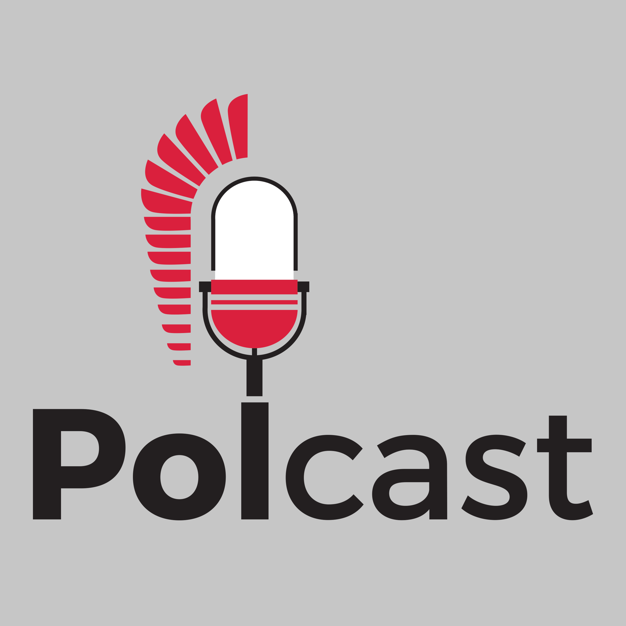 POLcast
POLcast
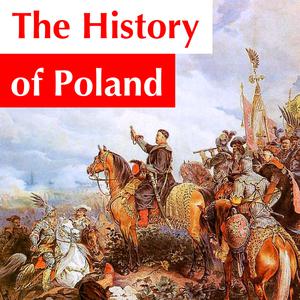 The History of Poland Podcast
The History of Poland Podcast
 In Between Europe
In Between Europe
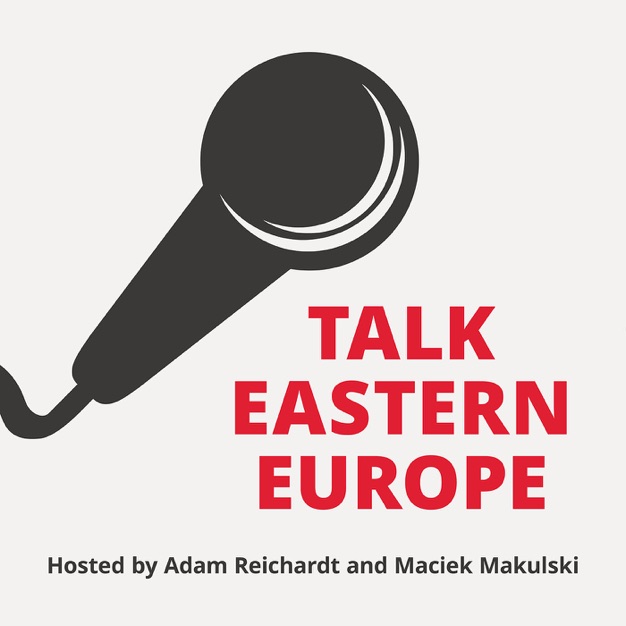 Talk Eastern Europe
Talk Eastern Europe
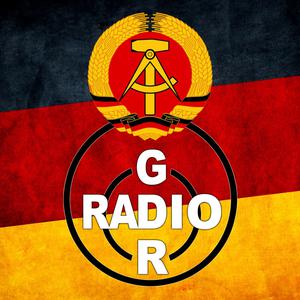 East Germany Podcast - Radio GDR
East Germany Podcast - Radio GDR
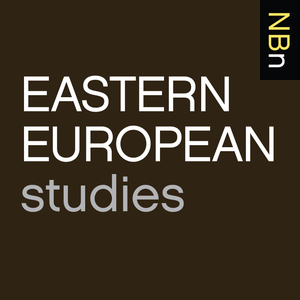 New Books in Eastern European Studies
New Books in Eastern European Studies